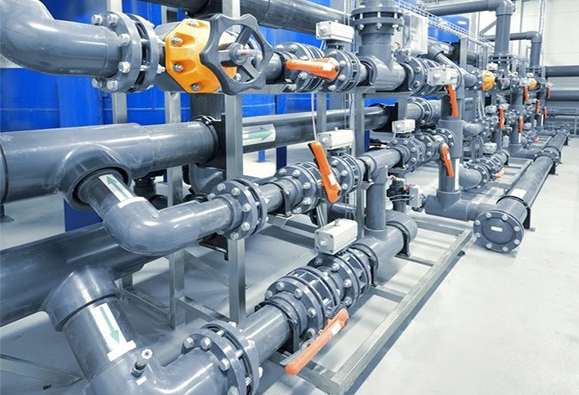
Category:Industrial pipeline
Introduction:
Industrial chlorinated polyvinyl chloride (PVC-C) pipes have the characteristics of high temperature resistance, corrosion resistance and flame retardant, and have been used in many industrial fields. PVC-C pipes are formed by chlorination of PVC polymers. PVC-C will have great differences in the amount of chlorination reaction due to different chlorinations. PVC-C pipes increase the chlorine content of basic PVC from 56.7% to 67-74%. % is as high as 63-67% for general PVC. The unique characteristics of PVC-C pipe make it have high temperature resistance, chemical inertness, excellent mechanical properties, non-conductivity, and combustion conductivity, making PVC-C pipe a very important engineering plastic material.Industrial chlorinated polyvinyl chloride (PVC-C) pipes have the characteristics of high temperature resistance, corrosion resistance and flame retardant, and have been used in many industrial fields. PVC-C pipes are formed by chlorination of PVC polymers. PVC-C will have great differences in the amount of chlorination reaction due to different chlorinations. PVC-C pipes increase the chlorine content of basic PVC from 56.7% to 67-74%. % is as high as 63-67% for general PVC. The unique characteristics of PVC-C pipe make it have high temperature resistance, chemical inertness, excellent mechanical properties, non-conductivity, and combustion conductivity, making PVC-C pipe a very important engineering plastic material. Under the Wendy condition of 82℃, the pressure rating of PVC-C pipe is 25% higher than that of standard PVC pipe. Compared with non-PVC-C industrial pipes, PVC-C pipes exhibit better creep performance and have a higher ability to withstand long-term high temperature hydrostatic pressure.


 Wechat QR code
Wechat QR code
 Home
Home Tel
Tel Product
Product